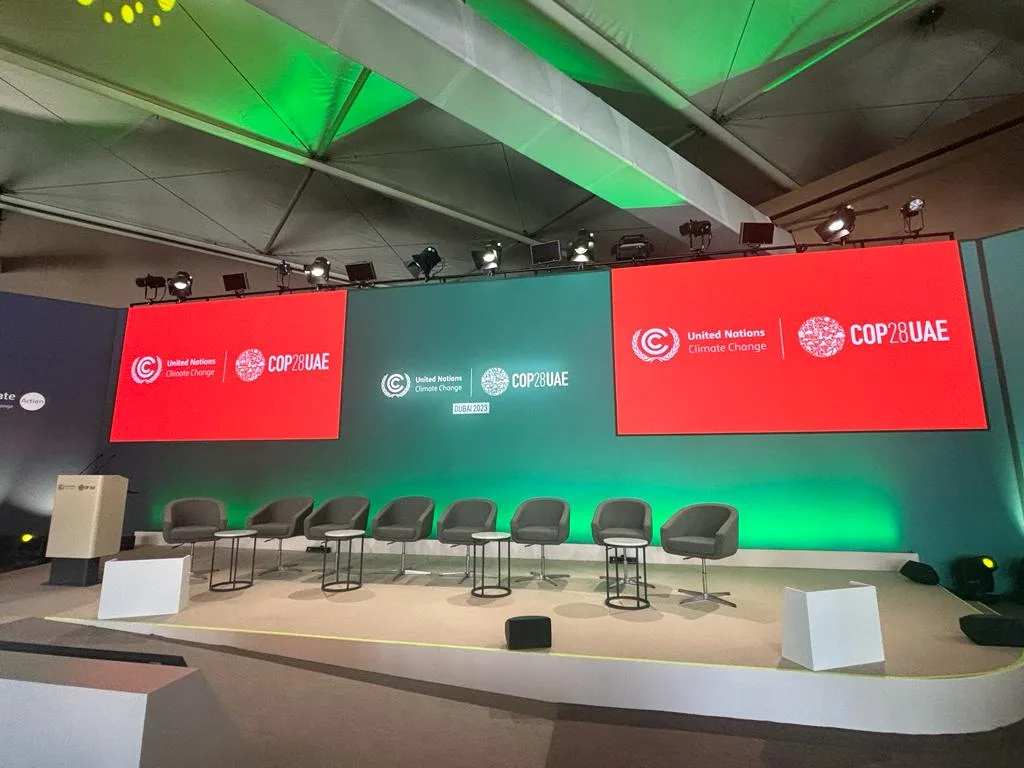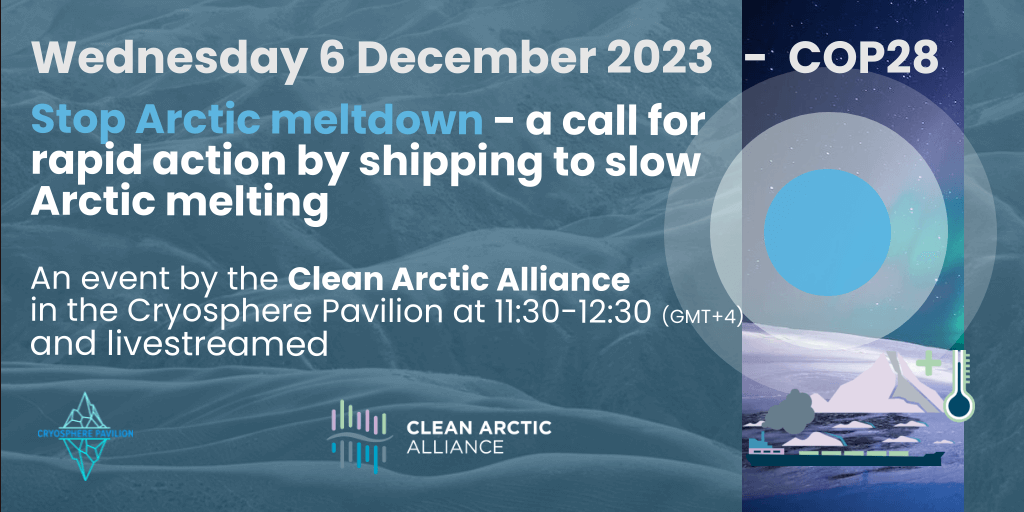Beyond LNG Shipping: “Just Transition” Day at COP28
As the world converges at COP28’s “Just Transition” day in Dubai, we are actively engaging in conversations and forming partnerships to strengthen our commitment to a “just and equitable” transition – beyond LNG shipping.

At COP26, the Dhaka-Glasgow Declaration was adopted, emphasizing the need for an equitable transition in shipping to ensure no one is left behind. Despite being the most vulnerable to climate impacts, Indigenous Peoples, Small Island Developing States (what are SIDS?), Least Developed Countries (what are LCDs?) bear minimal historical responsibility for the origins of climate change, including from greenhouse gas-emitting shipping fuels.
Fast forward to the first day of COP28: we saw countries pledge millions into a “loss and damages” fund earmarked for climate-vulnerable nations – an unprecedented achievement for some, a drop in the ocean for others. While a promising step forward, there are important critiques about this fund that require further climate diplomacy and action.
A just and equitable transition requires moving funding away from LNG shipping.
The COP28 Presidency has called on governments and key climate stakeholders to “fix climate finance”. To achieve full commercial viability of the zero-emissions shipping value chain, policymakers, the shipping industry, and financiers need to divest from LNG and pledge significant funds to real solutions (LNG is a $850 billion liability).
For example, despite Europe’s concerns over energy security, Ireland made the bold decision to reject a new LNG import terminal and ensure investments in its renewable energy and climate action plans.
Indigenous leaders are setting the tone at COP28: In a just and equitable transition “we are asking for companionship”.
Solidarity efforts underpin the collective fight against the systems of oppression that concentrate power and grant corporations exploitative control over our resources. We must be united in addressing violations of international human rights and Indigenous rights, environmental racism (e.g., “sacrifice zones”), and gender-based health impacts that arise from using LNG as a marine shipping fuel.
On the COP28 Panel “How Ambitious Emission Reductions Can Save Lives”, Damilola Ogunbiyi also speaks on the need for technology transfer, capacity building, and financing for developing countries as they lead us in this transition.
In our pursuit to better understand a just and equitable transition, our Global Director facilitated the COP28 Event “Postpone or Speed up the End of the World?”, where Indigenous and Quilombola leaders from the Global South underscored the neocolonial threat of oil and gas development in the Amazon (read more about LNG expansion in Brazil).
“The voices of the Indigenous Peoples from the Amazon region and Quilombola leaders from the Northeast of Brazil echo with undeniable clarity: within the COP forums, they find themselves engaged in a discourse that feels like a solitary conversation, witnessing from the outside decision-makers shaping a trajectory toward climate genocide.”
“The looming specter of oil and gas directly threatens their very existence and sovereignty. Beyond mere rhetoric and unfulfilled promises, there is an urgency for a systemic shift that places people at the core, a change that transcends superficial measures if we are to ‘postpone the end of the world’.”
Elissama Menezes, Global Director, Say No to LNGAs the Just Transition theme at COP28 is carried through the remainder of the conference, we will continue to highlight the importance of this transition for shipping – beyond LNG.
Join us tomorrow at the Clean Arctic Alliance official COP28 Side Event, where our Global Director Elissama Menezes will be speaking on an all-women panel, examining the threat of a fuel switch to LNG in the Arctic.
Registration: https://bit.ly/COP28Arctic
Livestream: https://www.youtube.com/@iccinet/streams

For media Inquiries please contact [email protected].